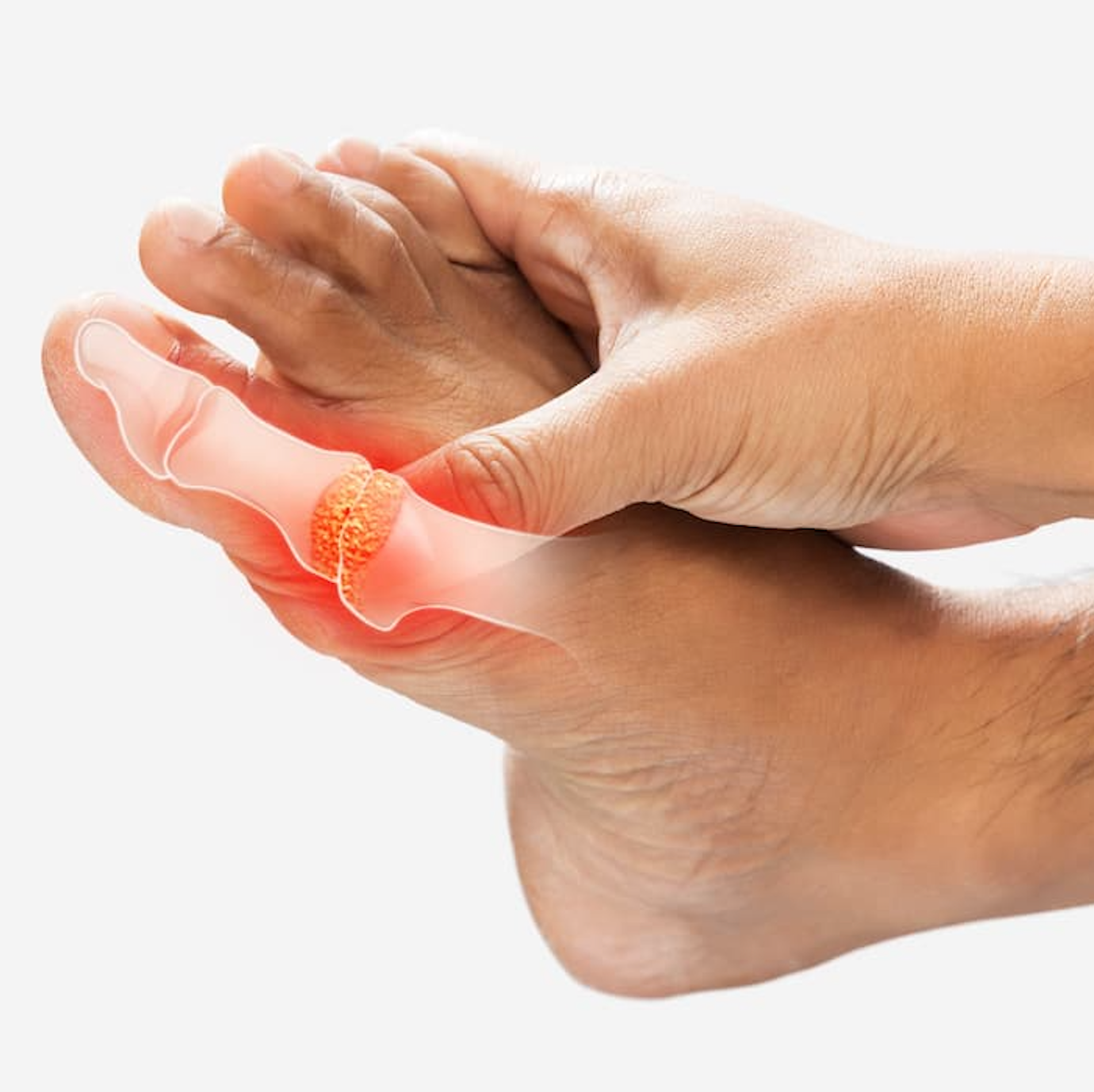A systematic review and meta-analysis revealed initiating urate-lowering therapy (ULT) in the midst of a gout flare did not affect the severity, duration, or increase the risk of recurrent flare, according to research published in Seminars in Arthritis and Rheumatism.1
Key Findings
- Six randomized controlled trials (RCTs) were included, involving 445 pooled participants.
- There was no significant increase in the risk of recurrent flare within the next 28 to 30 days when ULT was initiated during a gout flare.
- No differences were observed in patient-rated pain scores at various time points.
- Adverse events were comparable between the groups where ULT was initiated early and those with delayed initiation or placebo.
- Limitations included a small sample size, short trial duration, varying quality of included studies, and a high risk of bias.
- Considering the study's limitations and the specific patient groups involved, the researchers recommend an individualized approach to patient management.
Although treatment for gout is well-established, the timing of ULT initiation during flare remains unclear. Usually, treatment is delayed until the gout flare has resolved because of the fear of exacerbation or prolongation of the flare due to sudden changes in serum urate levels. Current guidelines have recommended conflicting advice on ULT timing, with European Alliance of Associations for Rheumatology (EULAR) guidelines avoiding the subject, the British Society of Rheumatology recommending a delay in initiation, and the American College of Rheumatology (ACR) conditionally recommending ULT initiation during a flare.2
“Guidelines on gout management have suggested that patients may be more motivated to initiate and persist with ULT when experiencing a gout flare,” wrote Vicky Tai, MBChB, Faculty of Medical and Health Sciences, University of Auckland, New Zealand, and colleagues.
Investigators searched for relevant randomized controlled trials (RCTs) using the databases MEDLINE, EMBASE, and The Cochrane Library from inception to March 1, 2023. Eligible studies were published in English and evaluated ULT initiation during a gout flare in adult patients. Extracted data included patient-rated pain score, recurrent gout flares, duration of flare, time to achieve target serum urate, patient satisfaction with treatment, adherence to treatment, and any adverse events.
Of the 972 studies initially identified, 6 RCTs were ultimately eligible for inclusion in the assessment. Of these 6, half were evaluated as having high risk of bias, 1 study had some concerns, and 2 studies had low risk of bias. The trials included a total of 445 pooled participants, with 226 randomized to early initiation of ULT and 219 received delayed initiation or placebo. Allopurinol was the most commonly prescribe ULT (n = 3), followed by febuxostat (n = 2), and probenecid (n = 1). A small number of patients (n = 62, 13.9%) were diagnosed with tophaceous gout and patients with renal impairment were generally excluded.
According to the analysis, there were no differences in patient-rated pain scores at baseline, days 3—4, days 7—8, day 10, or days 14—15 (P ≥ .42). Similarly, no significant differences were observed regarding the time to flare resolution (standardized mean difference .77 days; 95% confidence interval [CI] -0.26 to 1.79; P = .14). The risk of recurrent flare within the next 28 to 30 days were similar among groups (RR 1.06; 95 % CI .59 to 1.92; P = .84). Adverse events, which included renal impairment, gastrointestinal symptoms, elevated liver enzymes, and mild hypersensitivity reactions, were comparable between the experimental and control groups.
Unfortunately, the studies did not include information on the time to achieve target serum urate, patient satisfaction, or adherence to treatment.
Investigators noted the small sample size and the short duration of the trials as limitations of the study. Further, the included studies were rated as moderate to low quality, and half were characterized as high risk of bias. However, the comprehensive nature of the study design, including the most recent RCTs examining ULT initiation during flare strengthened the study. Additionally, patients from a variety of geographical locations were included in the assessment.
“Our findings may not be applicable to patients with tophaceous gout or comorbid renal disease,” investigators concluded. “Therefore, an individualized approach to patient management is recommended.”
References
- Tai V, Gow P, Stewart S, et al. An updated systematic review and meta-analysis of randomised controlled trials on the effects of urate-lowering therapy initiation during a gout flare. Semin Arthritis Rheum. Published online January 7, 2024. doi:10.1016/j.semarthrit.2024.152367
- M.A. Becker, P.A. MacDonald, B.J. Hunt, C. Lademacher, N. Joseph-Ridge Determinants of the clinical outcomes of gout during the first year of urate-lowering therapy. Nucleosides Nucleotides Nucleic Acids, 27 (2008), pp. 585-591






